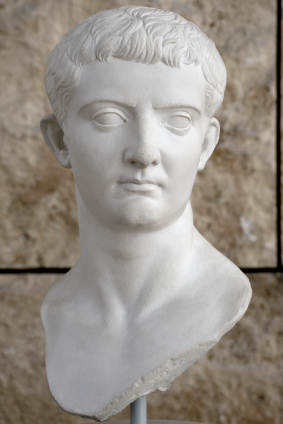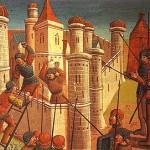 Tiberius Caesar was Roman Emperor from AD 14-37, that is, during the earthly ministry of Jesus. The Roman governor of Judea from AD 26-36 was Pontius Pilate, who reported directly to Tiberius. Given the miracles attributed to Jesus, it’s reasonable to assume Pilate spoke to Tiberius regarding Jesus. And in fact that’s what Eusebius reports.
Tiberius Caesar was Roman Emperor from AD 14-37, that is, during the earthly ministry of Jesus. The Roman governor of Judea from AD 26-36 was Pontius Pilate, who reported directly to Tiberius. Given the miracles attributed to Jesus, it’s reasonable to assume Pilate spoke to Tiberius regarding Jesus. And in fact that’s what Eusebius reports.
Eusebius, the first great Church historian, writing in the early fourth century, states that Pilate, in accordance with the custom of rulers of nations to report unusual occurrences to the emperor, transmitted to Tiberius an account of the circumstances concerning Jesus’ miracles and resurrection, a report that was already spreading throughout Palestine. Tiberius, apparently persuaded by Pilate’s report, submitted the matter to the Senate with the request Jesus be recognized as a god. However, the Senate had not investigated the matter fully and rejected the request.
Pilate’s report must have had some effect on Tiberius though because he did not encourage persecution of Christians during his reign and actually threatened the death of those who did accuse and persecute Christians. As a result, the kingdom of God advanced more freely than it might have otherwise under a more hostile ruler.
None of this is to suggest that Tiberius was a Christian. To the contrary, he was a perv who kept a harem of boys to use as objects of his sexual perversions. When he finally died, even the Romans rejoiced. What it does show, assuming Eusebius’s report is correct–and there is no persuasive reason to believe it is not–is that the evidence for Jesus’ miracles and resurrection was compelling enough to find its way to the most powerful earthly ruler of the day. GS


